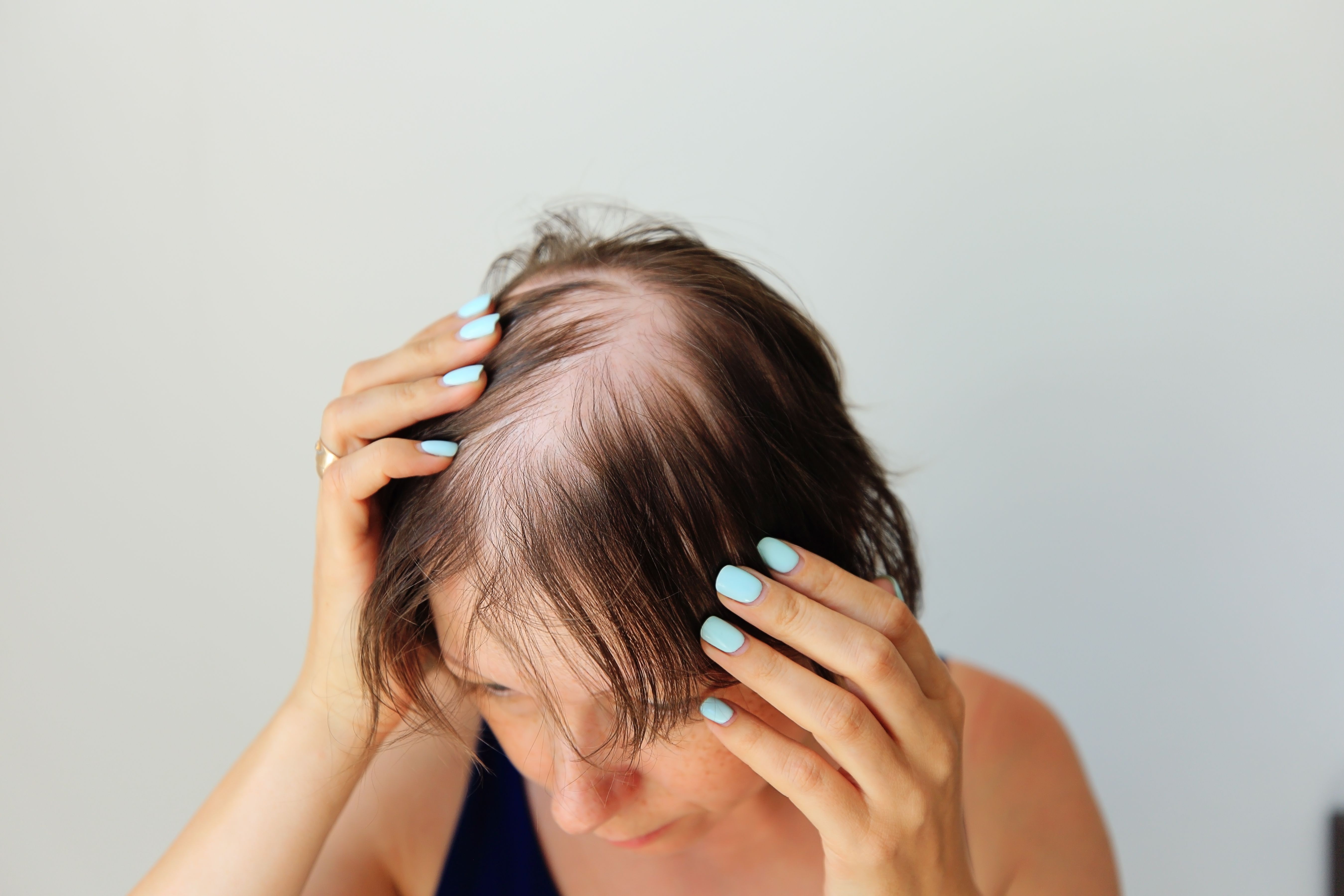- Case-Based Roundtable
- General Dermatology
- Eczema
- Chronic Hand Eczema
- Alopecia
- Aesthetics
- Vitiligo
- COVID-19
- Actinic Keratosis
- Precision Medicine and Biologics
- Rare Disease
- Wound Care
- Rosacea
- Psoriasis
- Psoriatic Arthritis
- Atopic Dermatitis
- Melasma
- NP and PA
- Skin Cancer
- Hidradenitis Suppurativa
- Drug Watch
- Pigmentary Disorders
- Acne
- Pediatric Dermatology
- Practice Management
- Prurigo Nodularis
- Buy-and-Bill
News
Article
Post-Hoc Analysis of ALLEGRO-2b/3 Trial Highlights Patient-Reported Outcome Improvements
Author(s):
Key Takeaways
- Ritlecitinib showed efficacy in alopecia areata, with significant hair regrowth linked to improved patient-reported outcomes, including psychosocial health and satisfaction.
- Responders experienced better emotional and activity outcomes, with higher satisfaction and improved SF-36v2 mental and physical scores.
Clinicians observed a positive relationship between scalp hair regrowth and downstream treatment benefits for patients with alopecia areata.
Image Credit: © _KUBE_ - stock.adobe.com

Researchers analyzed patient-reported outcome improvements from the ALLEGRO-2b and 3 trials, which measured the efficacy of ritlecitinib in patients with alopecia areata.1 A positive association of clinically meaningful scalp hair regrowth with improvements in treatment benefit, hair growth satisfaction, and psychosocial burden was observed.
The post-hoc analysis utilized longitudinal data from the randomized, double-blind, placebo-controlled, dose-ranging ALLEGRO-2b and 3 trial (NCT03732807). The trial evaluated oral JAK inhibitor ritlecitinib, which was approved by the FDA in 2023.2 Data was taken from multiple points between weeks 24 to 48 of the study, which was an additional extended period that gave the evaluated therapy to half of the placebo group.
The analysis compared improvements between patients who responded to treatment and those who did not. Responders had clinically significant hair growth with a Severity of Alopecia Tool (SALT) score ≤20 (SALT20) or ≤10 (SALT10). Eligible patients were adults and adolescents 12 years and older who had 50% or greater scalp hair loss. A total of 650 participants were included in the final results.
For patient-reported outcomes, the following health measures were used:
- Alopecia Areata Patient Priority Outcomes (AAPPO) instrument emotional symptom (ES) and activity limitation (AL) domains
- Patient Global Impression of Change (PGI-C)
- Patient Satisfaction with Hair Growth (P-Sat)
- Work Productivity and Activity Impairment for AA (WPAI-AA) in Adults
- 36-Item Short Form Health Survey version 2 (SF-36v2) mental (MCS) and physical component summary (PCS) scores
- Hospital Anxiety and Depression Scale (HADS)
For all categories, patients who saw clinical improvement were more likely to respond to measures of emotions, activity levels, physical health, and mental well-being. The proportion of reported items, especially AAPPO, generally increased over the course of the study.
“These findings suggest that participants who achieved clinically meaningful hair regrowth by Week 24 felt satisfaction and realized improvements to their psychosocial health more frequently and to a greater degree than participants who did not,” the authors noted.
In all weeks, all responders had a PGI-C score of “greatly improved” or “moderately improved” compared to non-responders. Similarly, more SALT20 responders especially had a score of “very satisfied,” “moderately satisfied,” or “slightly satisfied” on the P-Sat scale. In terms of physical and mental health, responders saw greater improvements in SF-36v2 MCS and PCS scores at week 48. A similar trend was observed in the HADS response.
As for limitations, selection bias may be noted as those who missed SALT or PRO assessments at any point may limit the generalizability of the research. Further qualitative or mixed method studies can help clinicians better understand the scope of these results.
“As disease-related hair loss is highly visible, people with alopecia areata may feel obligated to publicly conceal their condition and may develop social avoidance or phobia,” the authors wrote. “The combination of negative self-perception and cultural perception due to hair loss is broadly detrimental to the lives of people with alopecia areata, including to their family life, relationships, career choices, work productivity, and social activities.”
These results confirm that it is imperative for clinicians to work closely with their patients in monitoring treatment expectations and setting goals for those with androgenic alopecia.
References
1. Law EH, Hanson KA, Harries M, Korver D, Sherif B, Chirila C. Patient-reported outcome improvements following scalp hair regrowth among patients with Alopecia Areata: analysis of the ALLEGRO-2b/3 trial. J Dermatolog Treat. 2025;36(1):2460577. doi:10.1080/09546634.2025.2460577
2. Xu H, Jesson MI, Seneviratne UI, et al. PF-06651600, a Dual JAK3/TEC Family Kinase Inhibitor. ACS Chem Biol. 2019;14(6):1235-1242. doi:10.1021/acschembio.9b00188






